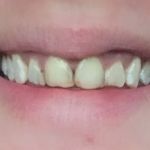Importance of Pediatric Dental Visits: Ensuring Your Child's Healthy Smile
- 1 - Why Pediatric Dental Visits Are Crucial for Your Child's Health
- 2 - When to Start Pediatric Dental Visits
- 3 - The Benefits of Early Pediatric Dental Visits
- 4 - Common Dental Problems in Children and How They Can Be Prevented
- 5 - How to Prepare Your Child for a Dental Visit
- 6 - How Pediatric Dentists Differ from Regular Dentists
1. Why Pediatric Dental Visits Are Crucial for Your Child's Health
Pediatric dental visits play a vital role in ensuring your child's overall health. Just as regular check-ups with a pediatrician help monitor your child's physical health, routine dental visits are equally important for their oral health. Pediatric dentists specialize in treating children's teeth, gums, and mouth, which are more vulnerable to dental issues than adults' teeth. Early visits to the dentist can prevent serious problems like cavities, gum disease, and tooth alignment issues, ensuring that your child develops healthy habits that last a lifetime.
2. When to Start Pediatric Dental Visits
According to the American Academy of Pediatric Dentistry, children should have their first dental visit by their first birthday, or within six months after the first tooth erupts. While this may seem early, it is crucial for parents to establish a relationship with a pediatric dentist as early as possible. This first visit helps familiarize both the child and the parents with the dental office environment, making future visits less stressful. Early visits also allow the dentist to monitor the development of the child's teeth and provide advice on proper brushing techniques and dietary habits.
3. The Benefits of Early Pediatric Dental Visits
There are numerous benefits to taking your child to the dentist early in life. These include:
- Prevention of Tooth Decay: Tooth decay is one of the most common childhood diseases. Regular dental visits can help detect cavities early and prevent further damage, avoiding the need for fillings or more invasive treatments.
- Establishing Good Oral Hygiene Habits: Early dental visits teach children the importance of good oral hygiene. Dentists provide tips on brushing, flossing, and eating habits that can help keep teeth healthy and prevent plaque buildup.
- Monitoring Tooth Development: A pediatric dentist can monitor your child’s tooth eruption, detect alignment problems, and provide preventive measures to guide the development of permanent teeth.
- Building Comfort and Trust: Regular dental visits help children feel more comfortable with dental procedures. They become accustomed to the sounds and tools of the dental office, which can reduce anxiety during future visits.
4. Common Dental Problems in Children and How They Can Be Prevented
Several dental issues are common among children, but with regular pediatric dental visits, most of these can be prevented or treated early:
- Cavities: Cavities are the most common dental problem in children. Poor oral hygiene, sugary snacks, and irregular brushing can lead to plaque buildup and tooth decay. Regular check-ups and cleanings can help prevent cavities by detecting early signs of decay.
- Gum Disease: Gum disease, also known as gingivitis, can affect children who do not brush properly. A pediatric dentist can identify early signs of gum disease and provide treatment to prevent it from progressing to more serious conditions like periodontitis.
- Tooth Sensitivity: Tooth sensitivity can occur when the enamel wears down due to improper brushing or a poor diet. Regular visits help identify sensitivity issues and provide treatments or advice to minimize discomfort.
- Teeth Alignment Issues: Some children may develop crooked or misaligned teeth. Early intervention by a pediatric dentist can help with preventive measures, such as space maintainers, to ensure teeth grow in correctly.
5. How to Prepare Your Child for a Dental Visit
It’s common for children to feel anxious about their first dental visits, but there are several ways to prepare them and reduce any fear or discomfort:
- Explain What Will Happen: Talk to your child about the visit in a positive, reassuring way. Explain that the dentist will look at their teeth and make sure they’re healthy, but avoid using scary terms like "pain" or "shots."
- Read Books or Watch Videos: There are many children’s books and videos that help explain dental visits in a fun, educational way. These resources can make the experience feel more familiar.
- Set a Good Example: If your child sees that you visit the dentist regularly and talk about it positively, they will likely feel more comfortable about going themselves.
- Offer Rewards: Consider offering a small reward, such as a sticker or extra playtime, after the visit to make the experience feel like an achievement.
6. How Pediatric Dentists Differ from Regular Dentists
Many parents may wonder why they should choose a pediatric dentist instead of a general dentist. Pediatric dentists specialize in the care of children's teeth, gums, and mouth, and their training is focused on treating younger patients. These dentists are not only experts in children's dental issues but also in managing the behavior of young patients. Pediatric dental offices are typically designed to be child-friendly, with smaller equipment, colorful decorations, and a welcoming atmosphere. Additionally, pediatric dentists are trained to provide preventive care that is tailored to children's evolving oral health needs.







 Kwong Orthodontics4.0 (10 review)
Kwong Orthodontics4.0 (10 review) My Dentist of Cape Coral4.0 (284 review)
My Dentist of Cape Coral4.0 (284 review) Bryn Mawr Dental Associates4.0 (493 review)
Bryn Mawr Dental Associates4.0 (493 review) Dentistry for Children - Cumming Midway4.0 (275 review)
Dentistry for Children - Cumming Midway4.0 (275 review) Chen Winston w DDS4.0 (23 review)
Chen Winston w DDS4.0 (23 review) James S Minutello, DDS and Regina D Minutello DMD MS Inc4.0 (255 review)
James S Minutello, DDS and Regina D Minutello DMD MS Inc4.0 (255 review) The Importance of Oral Health Education During Pregnancy for a Healthy Pregnancy
The Importance of Oral Health Education During Pregnancy for a Healthy Pregnancy Best Tips for Brushing Your Teeth Properly for Healthy Gums: Essential Techniques for Oral Health
Best Tips for Brushing Your Teeth Properly for Healthy Gums: Essential Techniques for Oral Health Why Skipping Dental Checkups Can Lead to Bigger Oral Health Problems
Why Skipping Dental Checkups Can Lead to Bigger Oral Health Problems Advantages of Porcelain Dental Restorations
Advantages of Porcelain Dental Restorations How Can Diabetes Cause Tooth and Gum Problems? Preventing and Managing Oral Health Issues
How Can Diabetes Cause Tooth and Gum Problems? Preventing and Managing Oral Health Issues Healthy Habits for Promoting Good Oral Health and Hygiene: Tips for a Healthy Smile
Healthy Habits for Promoting Good Oral Health and Hygiene: Tips for a Healthy Smile